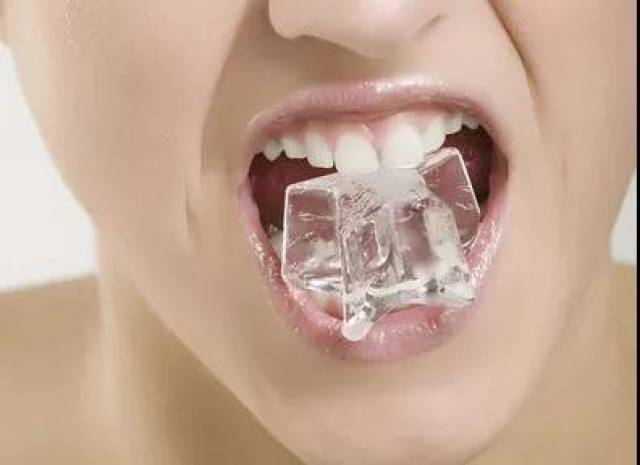
You finish your glass of water, and the only thing left is the ice. Without a second thought, you pop a cube in your mouth. But this isn’t just an occasional habit. You find yourself looking forward to it, craving the crunch, seeking out ice throughout the day. You might even chew ice from a fast-food cup or empty the ice maker into a bowl.
It’s easy to dismiss this as a quirky, harmless habit. But when the craving is constant and intense, it’s often more than just a preference. If you crave and chew ice constantly, it is very often your body’s primitive, non-verbal way of signaling a significant iron deficiency.
This specific craving has a name: Pagophagia. It’s a form of pica, a condition that drives people to crave and chew non-food substances like ice, clay, or dirt. While pica can be puzzling, the craving for ice, in particular, is a well-known red flag in the medical world.
Why Ice? The Connection to Iron
So, why would a lack of iron make you want to chew on frozen water? The connection isn’t entirely understood, but several compelling theories exist:
- The “Iced Tongue” Theory: One of the most common symptoms of iron-deficiency anemia is a sore, inflamed tongue (glossitis) and mouth sores. Chewing on ice can have a numbing, soothing effect on this inflammation, providing temporary relief from the discomfort.
- The Brain-Boost Theory: Iron is crucial for delivering oxygen to the brain. When you’re anemic, your brain may not be getting enough oxygen, leading to fatigue and “brain fog.” Some researchers believe that chewing ice may trigger a reflex that increases blood flow to the head, providing a temporary, jolt-like improvement in alertness and cognitive function.
- An Instinctual Cool-Down: Severe anemia can sometimes cause a low-grade fever or a feeling of being overheated. Chewing ice may be the body’s instinctive way of trying to cool itself down.
What Your Body is Desperately Trying to Tell You
The ice craving is a symptom, a clue to a deeper issue. Your body is essentially using a primitive signal to report that its iron stores are critically low. Iron is essential for producing hemoglobin, the protein in red blood cells that carries oxygen from your lungs to the rest of your body.
When you don’t have enough iron, you can develop iron-deficiency anemia. The ice craving is often one of the first and most specific signs, sometimes appearing before the more classic symptoms of anemia become obvious. Those other symptoms include:
- Overwhelming fatigue and weakness
- Pale or sallow skin
- Shortness of breath and a racing heart
- Dizziness or lightheadedness
- Brittle nails and hair loss
What to Do When You Have the Craving
Ignoring this signal is like ignoring a “Check Engine” light that’s flashing brightly on your body’s dashboard.
- Do Not Ignore It: This is not a habit to brush aside. Take the craving seriously as a potential health signal.
- Schedule a Doctor’s Appointment: This is the most critical step. Tell your doctor, “I have an intense, constant craving to chew ice.” This single sentence will tell them exactly what to look for.
- Get a Simple Blood Test: Your doctor can order a complete blood count (CBC) and an iron panel. These are simple, common tests that will definitively diagnose or rule out iron deficiency anemia.
- Investigate the Cause: Finding the low iron is only half the battle. Your doctor will then work with you to find out why it’s low. Common causes in adults include slow, chronic blood loss (from heavy periods, ulcers, or other GI issues), poor absorption, or dietary deficiencies.
Craving and chewing ice constantly is your body’s unique and powerful way of getting your attention. It’s a call for help, pointing directly to a potential iron deficit. By listening to this unusual message and getting a simple blood test, you can uncover the root cause, replenish your body’s iron stores, and watch the compulsive craving for ice simply melt away, restoring your energy and vitality in the process.